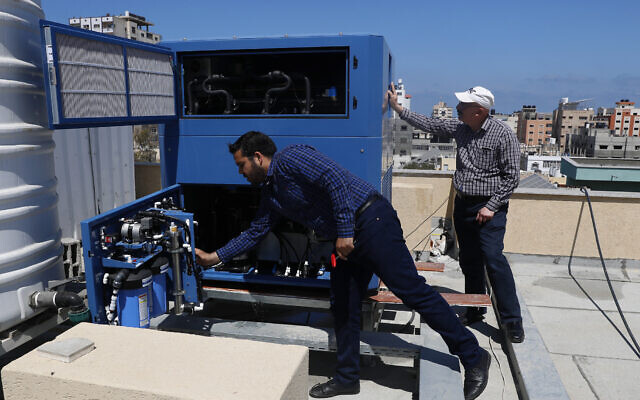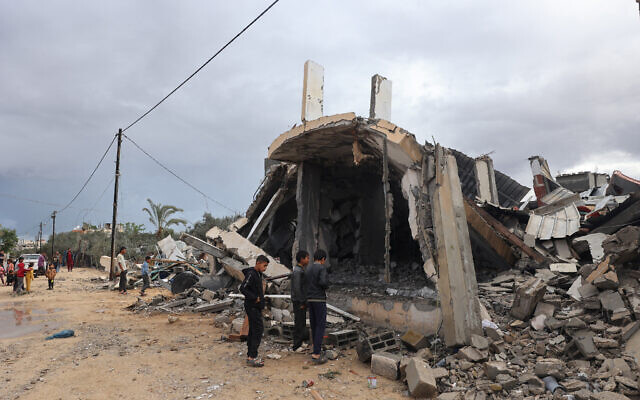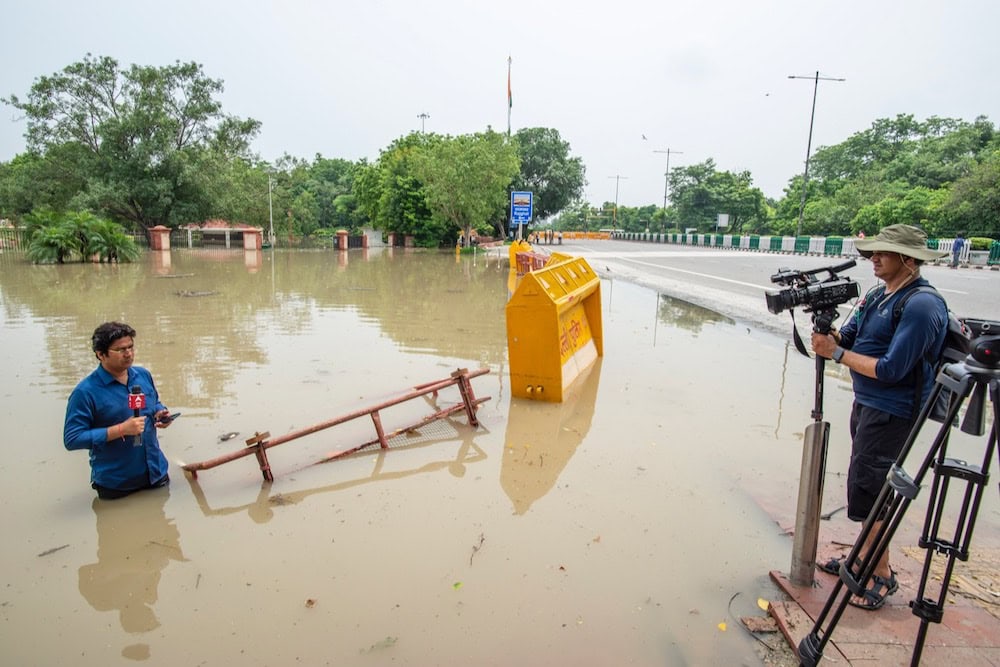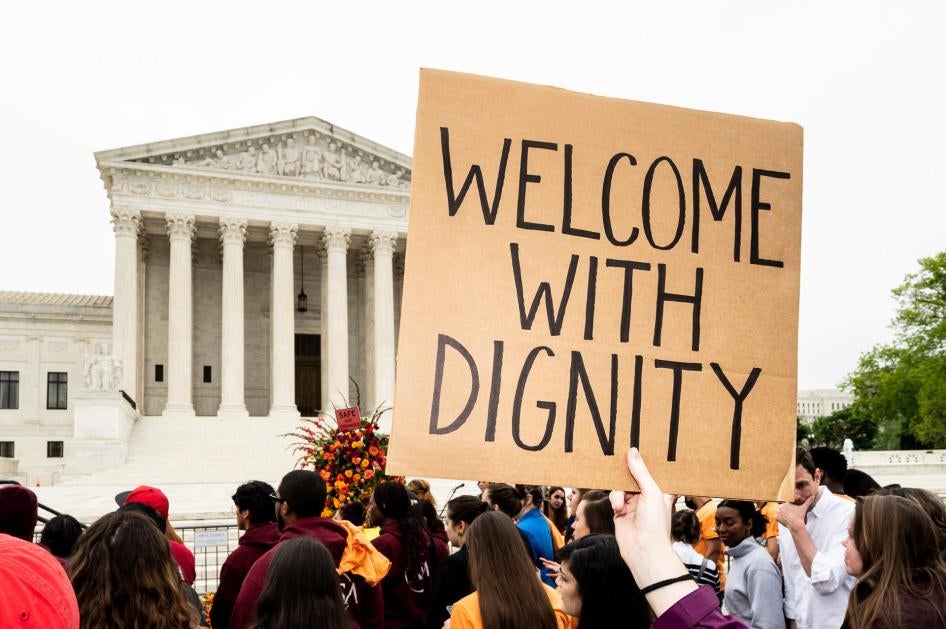UPDATED
ANOTHER DAY,ANOTHER ZIONIST WAR CRIME
US weapons parts used in Israeli attack on Gaza school: Al Jazeera analysis
Parts recovered from an Israeli attack on Thursday, which killed 40 Palestinians, made by US manufacturer.
Published On 6 Jun 2024
Among the rubble of the United Nations-run al-Sardi school in central Gaza’s Nuseirat refugee camp were the remnants of the weapons that killed at least 40 Palestinians.
The Israeli attack in the early hours of Thursday gave the displaced people sheltering in the school no prior warning. Fourteen children were killed, as well as nine women and at least 74 other people were wounded. The weapons used to carry out the attack – according to an Al Jazeera analysis of the fragments left behind – were US-made.
KEEP READINGlist of 3 itemslist 1 of 3
‘Standing Together’ against far-right Israeli hate in Jerusalemlist 2 of 3
‘Historic’: NAACP urges Biden to end arms transfers to Israel amid Gaza warlist 3 of 3
Houthis say they launched two attacks against ships at Haifa portend of list
An inertial measurement unit from the missile, used to aid with precision targeting, was manufactured by Honeywell, an American conglomerate that specialises in the design and delivery of sensors and guidance devices that are used in a variety of military weapons.
Al Jazeera’s Sanad verification unit discovered that one of the fragments found in Nuseirat bore the manufacturer and category number HG1930BA06, tracing it back to Honeywell. HG1930 refers to the specific sensor manufactured by the company.

The same part was found after the Israeli bombing of a Palestinian home in Shujayea, Gaza in 2014. The two pieces, in the most recent and the 2014 bombing, have the same manufacturer part number inscribed on them.
“We see also other numbers like the MFR, HG 1930 and then BA 06. This is the manufacturer part number that provides more specific details about the component of the missiles,” Elijah Magnier, an independent military and political analyst, told Al Jazeera. “Now, if you look at the manufacturer identification … it is a format used by the aerospace and defence sector in the United States connected to Honeywell.”
“Honeywell is known for the supply of IMU in the various military applications, and particularly the guided missiles that it has been providing to the Israeli Air Force since the year 2000.”
Al Jazeera has reached out to Honeywell for comment, but has yet to receive a response.
Israeli attacks on UN spaces have become commonplace during Israel’s war on Gaza, which has now killed more than 36,000 Palestinians.
The United States has been criticised for its role in supporting Israel, and particularly its continued supply of weapons.
Major rights groups have repeatedly accused Israel of violating international law, and Israel is currently facing a genocide case at the International Court of Justice. The International Criminal Court’s chief prosecutor has also sought arrest warrants for Prime Minister Benjamin Netanyahu and Defence Minister Yoav Gallant for their actions in Gaza.
In May, a US government report found possible Israeli violations of international law in Gaza, but stopped short of identifying the violations that would end its continuing military aid. US President Joe Biden has threatened to stop the supply of some offensive weapons to Israel if it continues its Rafah operation, but has not carried out the threat, despite Israel pressing on in the area, which lies in southern Gaza

Central Gaza under attack
Central Gaza has most recently come under severe Israeli bombardment, which Palestinians have described as similar to the early days of the war.
The attack on al-Sardi school in Nuseirat is part of that assault.
“The bombardment came from here,” said Naim al-Dadah, a survivor of the attack.
“We were sleeping. The flying metal reached the roof on the other side and all these nets landed over there, on the other side. What happened to us is beyond anyone’s imagination.”
Other witnesses say the attack tore people to pieces. Survivors collected body parts, including those of many children, until the early hours of the morning. Weapon debris was scattered throughout shattered rooms and the blood-stained mattresses. Multiple rooms were targeted, though the building’s structure remained intact.
Israel’s Arabic language spokesperson Avichay Adraee, claimed the UN school was targeted because it housed a Hamas command post and fighters involved in the Palestinian group’s October 7 attack on Israel, which killed 1,139 people. He also claimed Israel took several steps to minimise the possibility of civilian casualties. The director of Hamas’s government media office, Ismail al-Thawabta, rejected Israel’s claims.
In April, the media outlet +972 Magazine reported that Israel uses an artificial intelligence-targeting system called Lavender in its Gaza-bombing campaign. The report quoted Israeli military officials who said that the system generates targets to kill. For low-level Hamas targets, the report said, the army was permitted to kill 15 to 20 civilians. An attack on a more senior Hamas official with the rank of battalion or brigade commander was used to justify the killing of more than 100 civilians.
SOURCE: AL JAZEERA
Al Jazeera English
Al Jazeera is funded in whole or in part by the Qatari government.
Wikipedia
Jun 6, 2024 #Palestine #Gaza #GazaUnderAttack
Dozens Feared Dead In Israeli Airstrike On UNRWA School In Gaza
By UN News
Amid early reports that an Israeli strike on a UN-run school in Gaza overnight into Thursday left dozens dead, humanitarians warned that cholera and other potentially deadly diseases stalk people uprooted by the war, forced to live among “mountains of trash”.
“UNRWA can confirm that one of our schools in the Nuseirat area (Middle Areas) was hit overnight / early morning by Israeli Forces. The school was possibly hit several times,” the UN agency for Palestinian refugees told UN News. “The number of those reported killed is between 35 and 45. Scores others are injured. We are not able to confirm the above figure at this stage.”
Children caught up in war
Local officials in Gaza reported that 37 people were killed in the school building attack in Nuseirat refugee camp near Deir Al Balah in central Gaza. The toll included 14 children, it was also reported.
Media cited the Israeli military that the strike’s objective was to eliminate Hamas operatives and that it was only given the go-ahead after aerial surveillance, with additional measures taken to reduce the risk to civilians.
In an early response condemning the school attack, UNRWA said that 6,000 people had been sheltering on the premises. Since the war began, more than 180 buildings belonging to the UN agency have been hit, killing more than 450 displaced people in those facilities.
“The vast majority” were schools-turned-shelters, UNRWA said, as it issued a reminder “to all parties to the conflict that schools and other UN premises must never be used for military or fighting purposes…UN facilities must be protected at all times”.
Rubble for a home
The development came as humanitarians issued alerts about the already dire sanitary emergency in Gaza, as civilians displaced by the war “have no choice but to live amid the rubble and in destroyed UNRWA facilities”.
In its latest report on relief activities in May, the UN agency flagged that aid teams were allowed to pick up “just under 450 trucks in the past three weeks in support of the humanitarian operation. This is nothing in the face of the needs,” UNRWA said, insisting that at least 600 trucks per day “of commercial, fuel and humanitarian supplies” are required to help stave off famine and death in Gaza.
“Fuel is running short: our teams are standing by to pick it up when the Israeli Authorities give the green light,” UNRWA said, before highlighting “horrific” scenes of devastation from Jabalia Refugee Camp in northern Gaza, home to thousands of displaced people.
“All eyes are on the proposal to reach an end to this war through a ceasefire, the release of all hostages and substantial and safe flow of urgently needed supplies into Gaza,” the UNRWA update continued, as the US and 16 other countries reportedly expressed their full support for the ceasefire and hostage release proposal presented by President Biden on 31 May.
Cholera killer
As summer temperatures rise, humanitarians also expressed deep concerns that preventable disease outbreaks could spread more widely.
“Children in Gaza are living alongside mountains of trash and raw sewage as basic services reach a breaking point amid continued fighting and displacement,” said Catherine Russell, head of UN Children’s Fund, UNICEF, on X.
The lack of clean drinking water has also fuelled warnings that cholera may strike too, just as healthcare provision remains “crippled”, UN health agency chief Tedros Adhanom Ghebreyesus said.
“Intense hostilities have severely crippled health care provision in Rafah where tens of thousands of vulnerable people still remain,” he said in post on X, noting that the partner medical NGO International Medical Corps had moved its 160-bed field hospital from Al-Mawasi to the west of Rafah to its existing facility in Deir Al Balah.
The World Health Organization (WHO) Director-General noted that the only functioning field hospital in Al-Mawasi was the one run by the International Committee of the Red Cross. In Rafah city, meanwhile, only the United Arab Emirates field hospital currently provides health services “but is increasingly difficult to reach due to hostilities”, Tedros said.
West Bank spiralling
In a related development in the occupied West Bank, the UN’s top aid official in the Occupied Palestinian Territory (OPT) warned of rising violence, bloodshed and killings, mainly of Palestinians.
More than 500 Palestinians and 12 Israelis have been killed in the West Bank, including East Jerusalem, since 7 October, according to the UN aid coordination office, OCHA.
About 280 olive and fig trees and 580 grape vine trees were also vandalized by Israeli settlers in seven communities across the West Bank during the week-long reporting period, the UN office said in a scheduled update.
“While all eyes are on Gaza, the people of the West Bank must also be supported and protected. The situation here is volatile,” said UN Humanitarian Coordinator for the OPT Muhannad Hadi. “We can’t wait for the West Bank to become another Gaza.”
Mr. Hadi’s comments followed meetings on Wednesday with Palestinian herding and Bedouin communities in the central West Bank. Members and organizations supporting the Palestinian communities reported “heightened violence, settler activities, access restrictions, demolitions and other coercive policies and practices”, OCHA said in its update.
In the same report, the UN aid office said that Israeli forces shot and killed two Palestinian men near a military gate located in the Barrier west of Tulkarm city on Tuesdat, “after the two men reportedly opened fire at them. Their corpses have been withheld by Israeli forces”.
Bombardment in Rafah in the southern Gaza Strip. Photo Credit: UNICEF/Eyad El Baba
ZIONIST EXCUSE AS PER FORMA
IDF says bombed school had Hamas compound 'embedded inside'
After an Israeli strike on a U.N. school in Gaza, the IDF says they bombed the school because it had a Hamas compound "embedded inside" it. ABC News' Mick Mulroy and Marcus Moore report.
Israel Hamas: IDF strikes UN school in Gaza killing 40
Channel 4 News
Channel 4 is a British public broadcast service.
Wikipedia
Warning: This report contains distressing images.
Jun 6, 2024
More than 40 people have been killed after an Israeli airstrike hit a UN-run school in central Gaza where displaced Palestinians had been sheltering. Officials from the Gaza Health Ministry said 70 others were injured. A strike hit the UNRWA Al-Sardi school in central Gaza’s Nuseirat refugee camp in the early hours of the morning. Israel claimed it had been targeting Hamas militants inside. The airstrike came as Israel escalated its military operations in central Gaza - targeting the area with artillery strikes and a ground troops operation. Most of those killed and injured have been transported to Al-Aqsa Hospital - where conditions are said to be dire.








